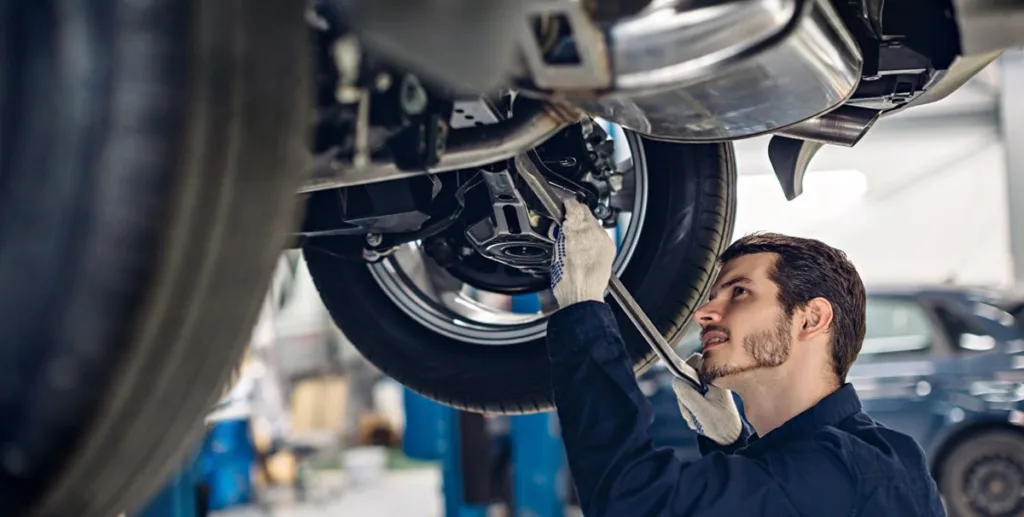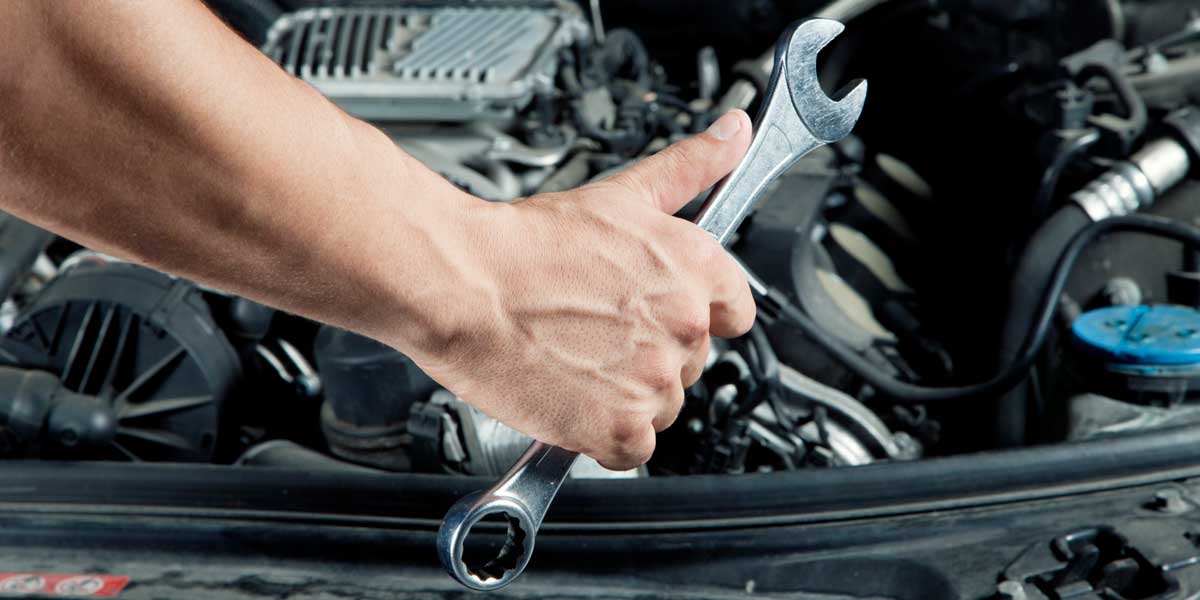Featured
When your automobile gets too hot, it can seem like a significant emergency, yet remaining calm and adhering to the appropriate actions can stop major engine damages and assistance get you back on the road safely. In this blog post, we'll discover what to do if your auto overheats and provide preventative suggestions to lower the threat of overheating in the future.
What to Do If Your Automobile Overheats. Draw Over to a Safe Area The very first and essential action if your vehicle begins to overheat is to pull over to a risk-free place immediately. Switch on your threat lights and assist your lorry to the shoulder or into a parking area. Maintaining your car running while it's overheated can trigger severe damages to the engine, so it's essential to close the engine off today.
Let the Engine Cool Off Once you have actually securely stopped, allow the engine to cool down. You ought to never attempt to open the radiator cap while the engine is still warm, as the release of steam or hot coolant can trigger burns. Wait at the very least 15-20 mins to permit the engine temperature level to drop to a much safer level before continuing.
![]()
Examine the Coolant Degree After the engine has actually cooled down, examine the coolant levels by evaluating the tank or radiator. If it's reduced, top it off with a mix of coolant and water (as defined by your vehicle's producer) Always make use of caution when opening the coolant reservoir, as stress might have developed.
Search For Visible Leaks While you wait for the engine to cool down, aesthetically check the radiator, hoses, and coolant tank for any type of visible leaks or cracks. A dripping radiator or pipe is a typical reason for overheating. It's better to call a tow solution than threat driving further and creating additional damage. if you find a significant leakage.
Reactivate the Engine After permitting the engine to cool and ensuring the coolant is complemented, start the engine and keep track of the temperature level scale. If the temperature remains to rise rapidly, it's best to shut the engine off and call for roadside support or a tow to the nearby auto mechanic.
![]()
Exactly How to stop Overheating in the Future. Routinely Examine Coolant Levels Among the easiest ways to protect against overheating is by maintaining the ideal level of coolant. With time, coolant can vaporize, so frequently check the coolant levels in the storage tank. Reduced coolant degrees can trigger the engine to get too hot quickly, so top it off as required.
Examine the Radiator The radiator plays a crucial function in keeping the engine cool. Periodically check the radiator for any type of obstructions, dirt, or particles that could obstruct airflow. If you notice any kind of indications of damage, such as rust or leaks, have it fixed or changed immediately.
The thermostat regulates the circulation of coolant, while the water pump flows it via the engine. If either part is faulty, it can avoid appropriate cooling.
Flush the Air conditioning System With time, coolant can weaken and become inefficient, causing a buildup of particles in the system. Purging the air conditioning system every 30,000 miles, or as suggested in your vehicle's guidebook, aids to eliminate any type of sludge or accumulation and ensures the cooling system is operating appropriately.
Monitor the Condition of the Hoses The pipes in your car's cooling system can wear or crack with time. Evaluate the pipes for any kind of indications of wear, such as protruding, cracks, or leaks, and replace them if needed. Protecting against coolant leaks can go a long way in avoiding overheating.
![]()
Drive Properly Aggressive driving, such as increasing rapidly or driving at broadband, places extra pressure on your engine and its cooling system. Attempt to drive at moderate rates, especially on hot days or when driving on steep inclines, to decrease the possibilities of overheating.
Stay Clear Of Overloading Your Automobile Carrying too much weight in your vehicle places stress on the engine and air conditioning system. Constantly be mindful of your vehicle's weight limit, specifically if you're transporting heavy lots, lugging a trailer, or driving cross countries in heat.
Conclusion. A getting too hot vehicle can be a frightening experience, however recognizing how to react and avoid it can save you time, cash, and prospective engine damage. Always inspect your coolant levels, evaluate vital components like the radiator, thermostat, and tubes, and adhere to a regular maintenance timetable. By remaining on top of your car's cooling system, you can decrease the risk of getting too hot and enjoy a smoother, much safer driving experience.
What to Do If Your Automobile Overheats. Draw Over to a Safe Area The very first and essential action if your vehicle begins to overheat is to pull over to a risk-free place immediately. Switch on your threat lights and assist your lorry to the shoulder or into a parking area. Maintaining your car running while it's overheated can trigger severe damages to the engine, so it's essential to close the engine off today.
Let the Engine Cool Off Once you have actually securely stopped, allow the engine to cool down. You ought to never attempt to open the radiator cap while the engine is still warm, as the release of steam or hot coolant can trigger burns. Wait at the very least 15-20 mins to permit the engine temperature level to drop to a much safer level before continuing.

Examine the Coolant Degree After the engine has actually cooled down, examine the coolant levels by evaluating the tank or radiator. If it's reduced, top it off with a mix of coolant and water (as defined by your vehicle's producer) Always make use of caution when opening the coolant reservoir, as stress might have developed.
Search For Visible Leaks While you wait for the engine to cool down, aesthetically check the radiator, hoses, and coolant tank for any type of visible leaks or cracks. A dripping radiator or pipe is a typical reason for overheating. It's better to call a tow solution than threat driving further and creating additional damage. if you find a significant leakage.
Reactivate the Engine After permitting the engine to cool and ensuring the coolant is complemented, start the engine and keep track of the temperature level scale. If the temperature remains to rise rapidly, it's best to shut the engine off and call for roadside support or a tow to the nearby auto mechanic.

Exactly How to stop Overheating in the Future. Routinely Examine Coolant Levels Among the easiest ways to protect against overheating is by maintaining the ideal level of coolant. With time, coolant can vaporize, so frequently check the coolant levels in the storage tank. Reduced coolant degrees can trigger the engine to get too hot quickly, so top it off as required.
Examine the Radiator The radiator plays a crucial function in keeping the engine cool. Periodically check the radiator for any type of obstructions, dirt, or particles that could obstruct airflow. If you notice any kind of indications of damage, such as rust or leaks, have it fixed or changed immediately.
The thermostat regulates the circulation of coolant, while the water pump flows it via the engine. If either part is faulty, it can avoid appropriate cooling.
Flush the Air conditioning System With time, coolant can weaken and become inefficient, causing a buildup of particles in the system. Purging the air conditioning system every 30,000 miles, or as suggested in your vehicle's guidebook, aids to eliminate any type of sludge or accumulation and ensures the cooling system is operating appropriately.
Monitor the Condition of the Hoses The pipes in your car's cooling system can wear or crack with time. Evaluate the pipes for any kind of indications of wear, such as protruding, cracks, or leaks, and replace them if needed. Protecting against coolant leaks can go a long way in avoiding overheating.

Drive Properly Aggressive driving, such as increasing rapidly or driving at broadband, places extra pressure on your engine and its cooling system. Attempt to drive at moderate rates, especially on hot days or when driving on steep inclines, to decrease the possibilities of overheating.
Stay Clear Of Overloading Your Automobile Carrying too much weight in your vehicle places stress on the engine and air conditioning system. Constantly be mindful of your vehicle's weight limit, specifically if you're transporting heavy lots, lugging a trailer, or driving cross countries in heat.
Conclusion. A getting too hot vehicle can be a frightening experience, however recognizing how to react and avoid it can save you time, cash, and prospective engine damage. Always inspect your coolant levels, evaluate vital components like the radiator, thermostat, and tubes, and adhere to a regular maintenance timetable. By remaining on top of your car's cooling system, you can decrease the risk of getting too hot and enjoy a smoother, much safer driving experience.
Latest Posts
Uncover Oil Changes & More: Complete Auto Care Solutions from Montclare Auto Repair
Published May 24, 25
1 min read
Join Your Financial Partner at WyHy – Key Advantages for Your Money Goals
Published May 23, 25
1 min read
Discover WyHy FCU – Financial Freedom for Your Success
Published May 23, 25
1 min read
More
Latest Posts
Uncover Oil Changes & More: Complete Auto Care Solutions from Montclare Auto Repair
Published May 24, 25
1 min read
Join Your Financial Partner at WyHy – Key Advantages for Your Money Goals
Published May 23, 25
1 min read
Discover WyHy FCU – Financial Freedom for Your Success
Published May 23, 25
1 min read